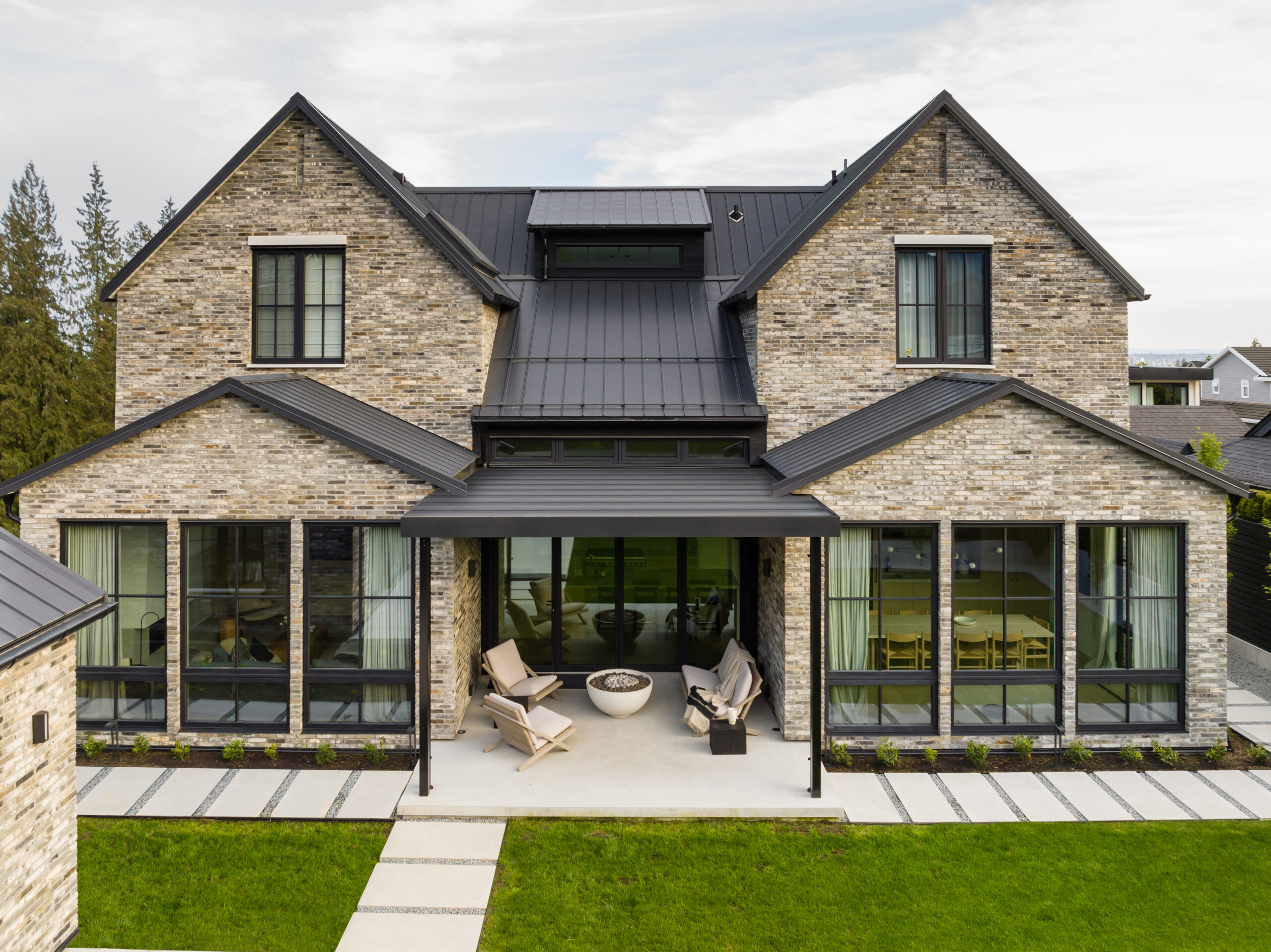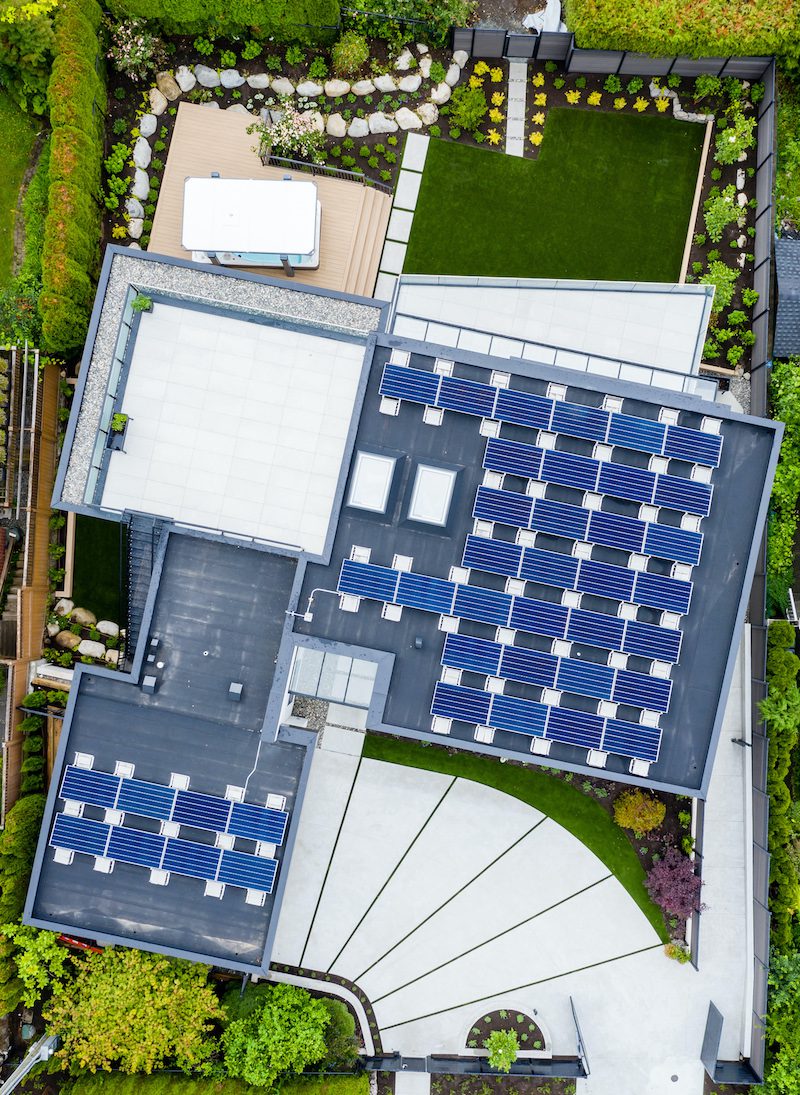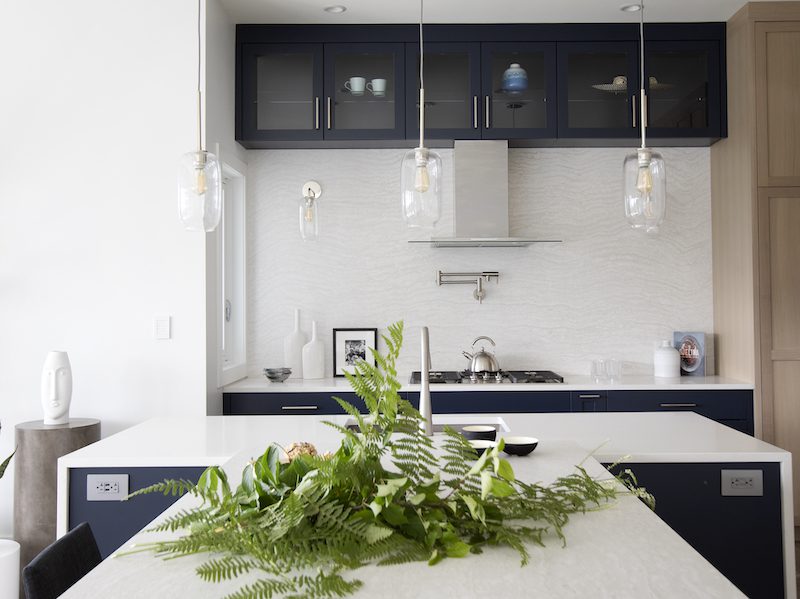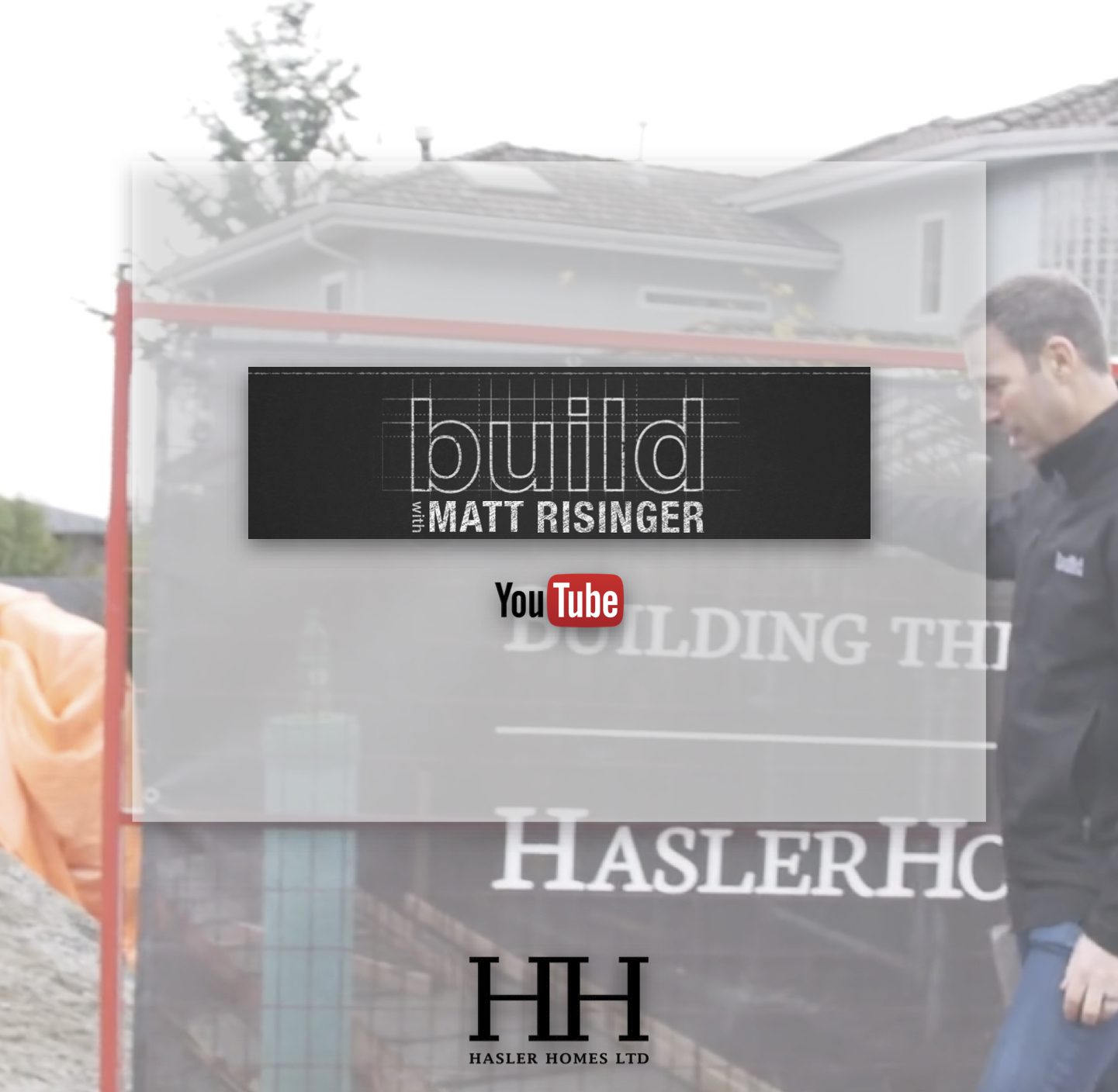Interested in building a high-performance home but not quite sure what that means or if it’s worth it?
In this article, our experienced builders explain what a high-performance home is and discuss the pros and cons of high-performance, energy-efficient construction. Plus, we share our professional opinion for those looking for advice on whether they should build an energy-efficient home.
Ready to discover everything you need to know about high-performance homes? Let’s take a look.
Table of Contents:
What is a high-performance home?
Key Features
Benefits
Disadvantages
Traditional vs Energy-Efficient Homes
Is a high-performance house worth it?
Building with Hasler Homes
FAQ
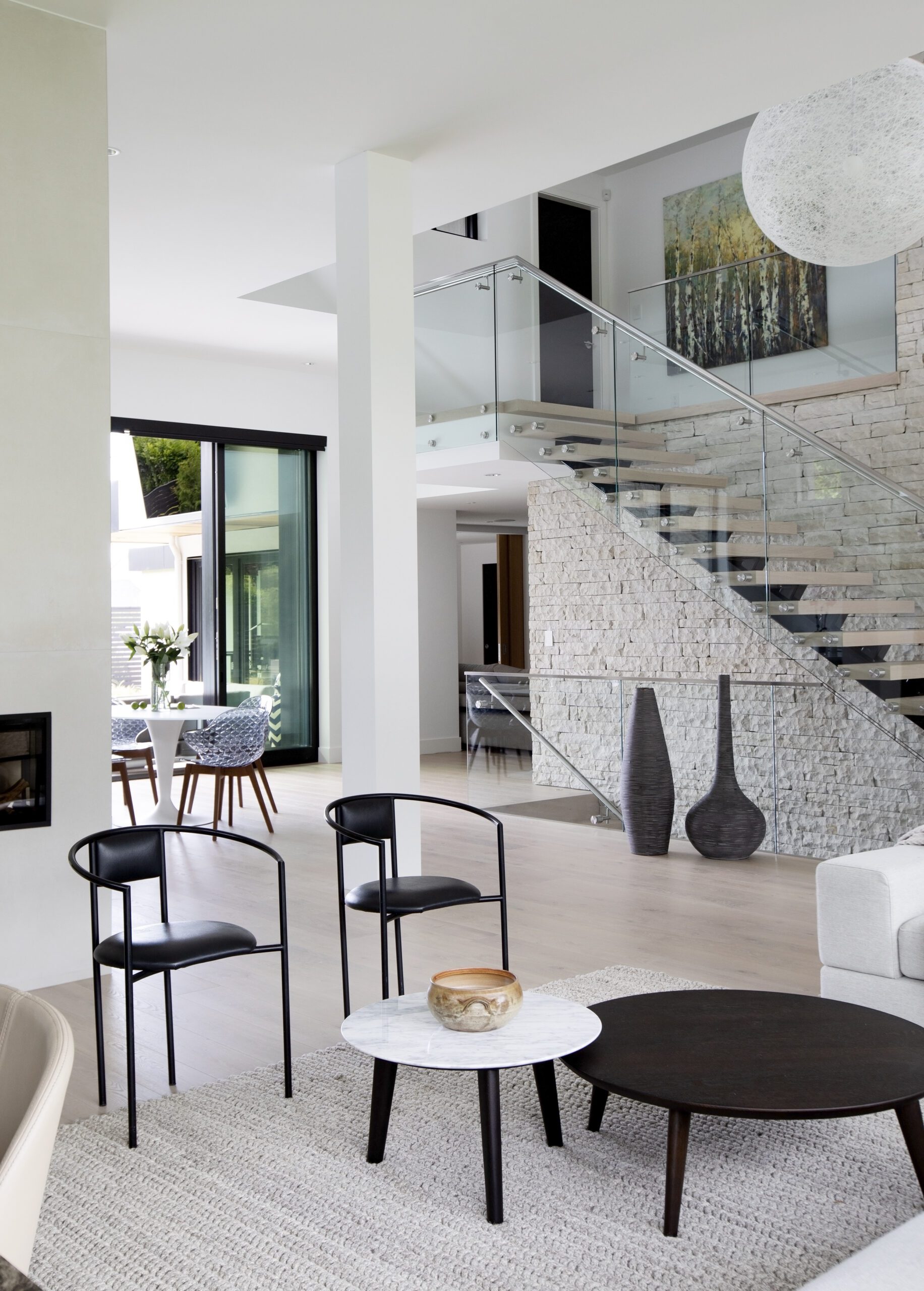
What is a high-performance home?
DEFINITION: A high-performance home is a house that is designed to be energy efficient, sustainable and durable and to provide a comfortable, healthy living space.
Also referred to as high-efficiency homes or energy-efficient homes, high-performance homes go beyond traditional building standards. High-performance builders, like Hasler Homes, use advanced building materials, innovative technologies, and superior construction methods to build homes that minimize environmental impact and energy consumption and improve home comfort and indoor air quality.
High-Performance Home Certification
High-performance homes are often certified by third-party organizations. These organizations ensure the house is tested and meets the required standards.
Legitimate third-party certification programs for high-performance homes in Vancouver include:
- Built Green Canada
- CHBA Net Zero
- Holmes Approved Homes
- Passive House (or Passivhaus)
- ENERGY STAR
- LEED (Leadership in Energy and Environmental Design)
- R-2000
IMPORTANT TO NOTE: Building an energy-efficient home does not mean you have to give up beauty and functionality! When you work with an experienced high-performance custom home builder in Vancouver, like Hasler Homes, you can have it all – gorgeous, open interior spaces, exceptional curb appeal, optimal functionality AND energy-efficient features!
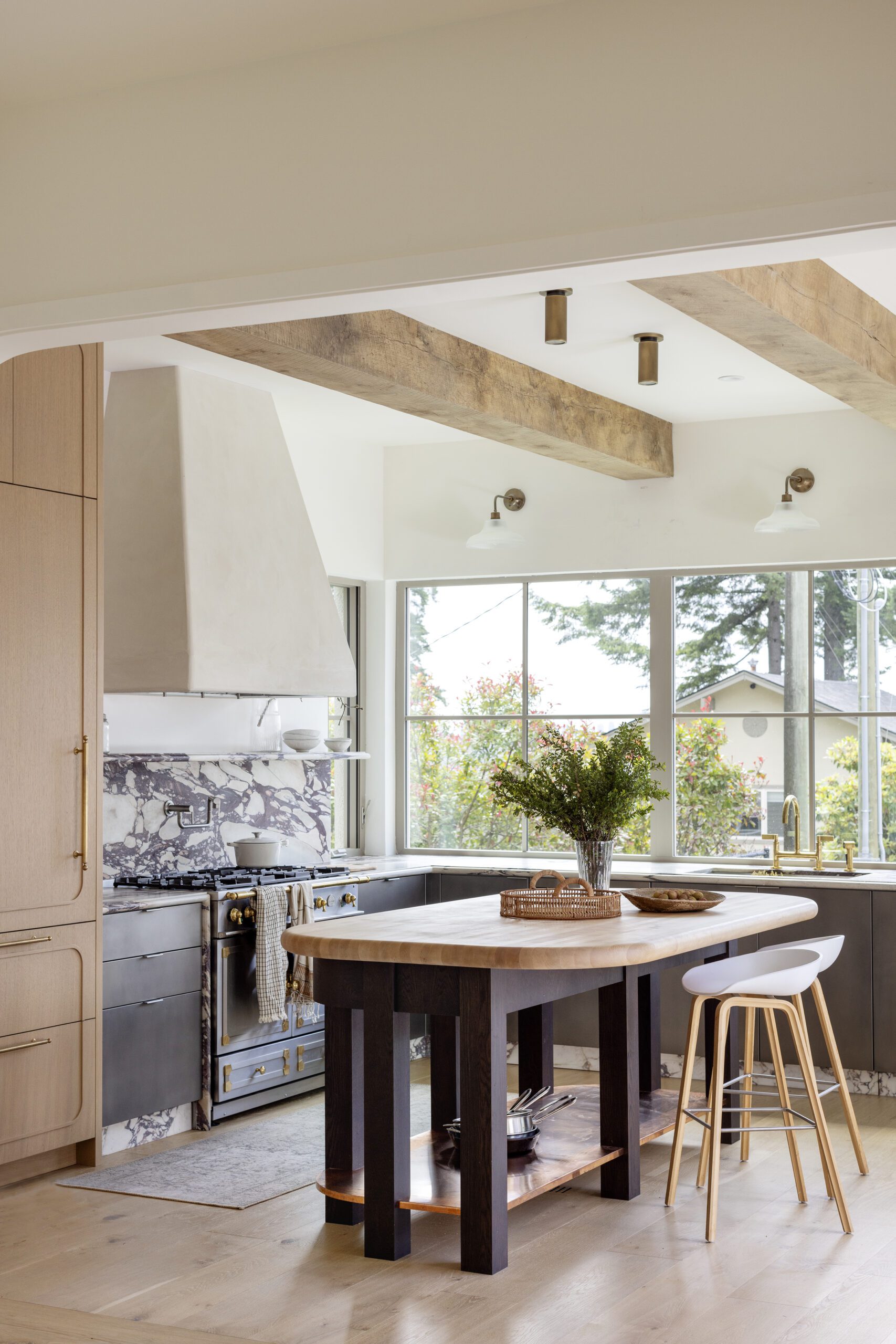
Key Features of High-Performance Homes
Several key features help high-efficiency homes deliver exceptional energy efficiency, comfort, and sustainability. These features include the following.
- Airtight building envelope (airtightness of less than 1.5 ACH at 50 Pa)
- Enhanced thermal insulation envelope (i.e., high insulation values, which start under the slab, then go to foundation walls (ICF) and continue on the exterior sheathing, better ceiling insulation as well)
- High-performance ENERGY STAR windows (typically triple-glazed) and doors
- Heat Recovery Ventilator (HRV) or Energy Recovery Ventilator (ERV) to ensure superior indoor air quality and comfort
- High-efficiency heating and cooling systems
In addition to the components listed above, some Vancouver homeowners incorporate additional features to further reduce their energy consumption and carbon footprint. Other common high-performance home features include:
- Energy-efficient appliances and/or electronics (ENERGY STAR certified)
- Low-flow faucets
- Heat pump
- LED lighting
- Smart home technology like smart thermostats, automated lighting systems, etc.
- Drain water heat recovery (DWHR) system
- Renewable energy features, such as geothermal heating systems, solar panels, solar water heating, etc.
- In-floor heating systems
- Durable and environmentally friendly building materials like reclaimed wood, recycled steel, etc.
- Water conservation features like rainwater harvesting systems, greywater recycling, etc.
- Optimized design (e.g., passive solar design, thoughtful landscaping, overhangs to mitigate summer heat gain, etc.)
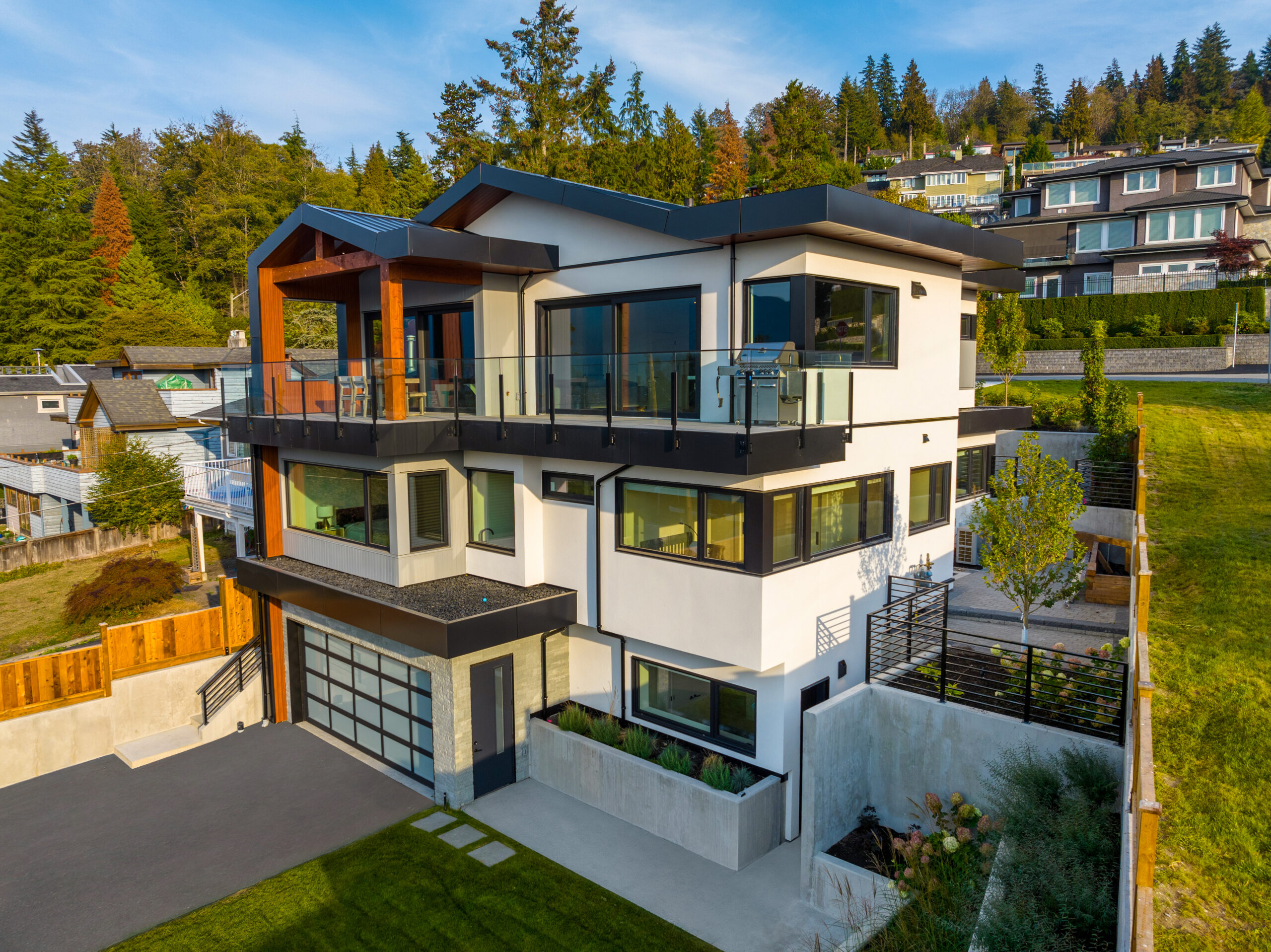
Benefits of High-Performance Homes
Energy-efficient homes offer many benefits, especially for Vancouver homeowners. Some of the most notable advantages of high-efficiency homes include:
- Reduced energy consumption
- Lower monthly energy bills
- Reduced environmental impact (e.g., lower greenhouse gas emissions)
- Better indoor air quality
- Overall healthier indoor environment
- Enhanced home comfort
- Reduced noise levels
- Increased resale value
- Lower maintenance and repair costs over time (with high-quality construction)
- Long-term durability
- Increased resiliency (e.g., the addition of solar panels can allow you to keep power during an outage)
A NOTE ABOUT HIGH-PERFORMANCE HOMES AND HEALTH: The health benefits of living in an energy-efficient home are not just rumours! A study conducted by Health Canada compared the health of homeowners before and after moving into new high-performance homes (R-2000) vs. similar traditional houses (non-R-2000). The study found that 94% of those who moved into high-efficiency homes reported better indoor air quality in their new home. In comparison, only 77% of those who moved into conventional houses reported better indoor air quality. In addition, 56% of those living in R-2000 high-performance homes reported health improvements after moving in – with no one reporting a deterioration in their health. On the other hand, only 32% of people who moved into traditional homes reported health improvements, and 10% reported a decline in their health.
While there are many benefits to living in a high-efficiency home, there are also some drawbacks. Let’s take a look.
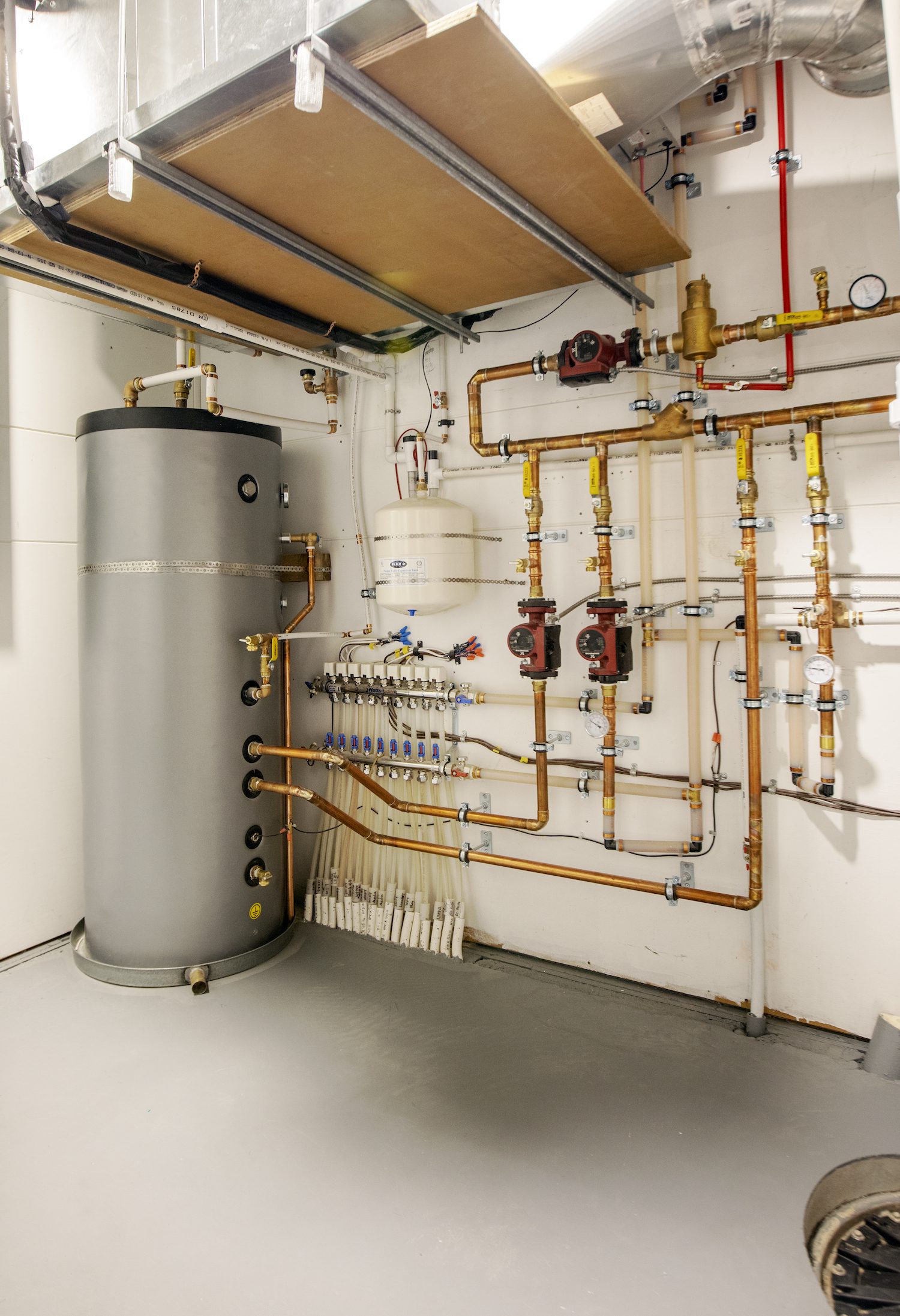
What are the disadvantages of an energy-efficient home?
This article wouldn’t be complete without discussing the disadvantages of building a high-efficiency home. Here are some drawbacks to consider.
- Higher upfront costs. It’s no secret – building a high-performance home is more expensive than building a traditional house (in most cases) due to the high cost of sustainable building materials, cutting-edge technologies, and specialized construction methods.
- Longer construction timeline. Designing and building an energy-efficient home can take longer due to the need for meticulous planning and execution. In addition, procuring specialized systems, technologies, and building materials can often take longer than the standard components found in a traditional home.
- Higher maintenance costs for advanced systems. High-performance homes often include sophisticated systems, like smart home technology, HRV or ERV and solar power systems, that require specialized maintenance. And, of course, specialized maintenance comes with a higher price tag. Higher maintenance costs may also be incurred if these systems are poorly maintained or operated incorrectly. That said, well-built, energy-efficient homes often require fewer repairs and, therefore, have a cheaper running cost in the long run.
As you can see, the biggest drawback to building a high-efficiency home is the upfront cost. However, this higher cost can be offset by lower energy expenses and (typically) less maintenance and repairs. More importantly, for many Vancouver homeowners, the price of a high-performance home is overshadowed by improved health and comfort and the opportunity to lower their carbon footprint.
Traditional vs Energy-Efficient Homes
How does a high-efficiency home compare to a traditional home? The table below compares various features to help you decide if a high-performance home is right for you.
| Feature | Traditional Homes | High-Performance Homes |
| Energy Efficiency | – Standard insulation and home systems – Higher energy consumption – Reliant on the energy grid – Operating costs affected by energy price increases | – Superior efficiency, with advanced insulation – Airtight building envelope – Energy-efficient systems – Less reliance on the energy grid – Can help protect against energy price increases |
| Building Materials | – Conventional materials – May not prioritize sustainability | – Eco-friendly, durable, and often sustainably sourced materials |
| Indoor Air Quality | – Traditional ventilation systems – May lack high-quality indoor air | – Enhanced indoor air quality – Advanced ventilation systems (e.g., HRV, ERV) – Low (or no) VOC-emitting building materials |
| Comfort | – Potential for drafts and temperature and humidity fluctuations – More indoor noise pollution | – Consistent indoor temperatures and humidity levels – Reduced drafts – Reduced noise levels |
| Environmental Impact | – Higher environmental impact – Standard energy and material use | – Reduced carbon footprint – Lower energy consumption – Use sustainable building materials and renewable energy |
| Smart Technology Integration | – Often limited or no smart technology features | – Commonly incorporate smart thermostats, lighting, and energy monitoring systems |
| Durability | – Standard durability – Often require more maintenance over time | – Built to last – Use materials and techniques that reduce maintenance needs |
| Upfront Costs | – Lower initial costs with standard materials and systems | – Higher upfront costs due to advanced materials, systems, and technologies |
| Long-Term Costs | – Higher energy and maintenance costs over time | – Lower long-term costs due to reduced energy bills and maintenance expenses |
| Resale Value | – Standard resale value – May not appeal to eco-conscious buyers | – Typically, higher resale value due to demand for energy-efficient, sustainable homes – Often sell more quickly |
| Construction Timeline | – Typically shorter with standard building practices | – May take longer due to specialized techniques and technologies |
So, is building a high-performance house worth it?
Still not sure if building a high-performance home is worth it? Here’s our two cents.
VERDICT: Yes, if health, home comfort and sustainability are priorities for you and your family, then building a high-performance house is 100% worth it!
If you are in a position to manage the higher upfront costs, building an energy-efficient home is a smart investment that offers short-term and long-term benefits. With improved indoor air quality, overall health benefits, lower utility bills, minimal environmental impact, and a higher resale value, high-efficiency homes appeal to many Vancouver homeowners, especially those who are future-focused. Future-proof by design, energy-efficient homes exceed current energy standards and often incorporate smart home technologies and durable systems, ensuring they remain valuable and efficient for years to come.
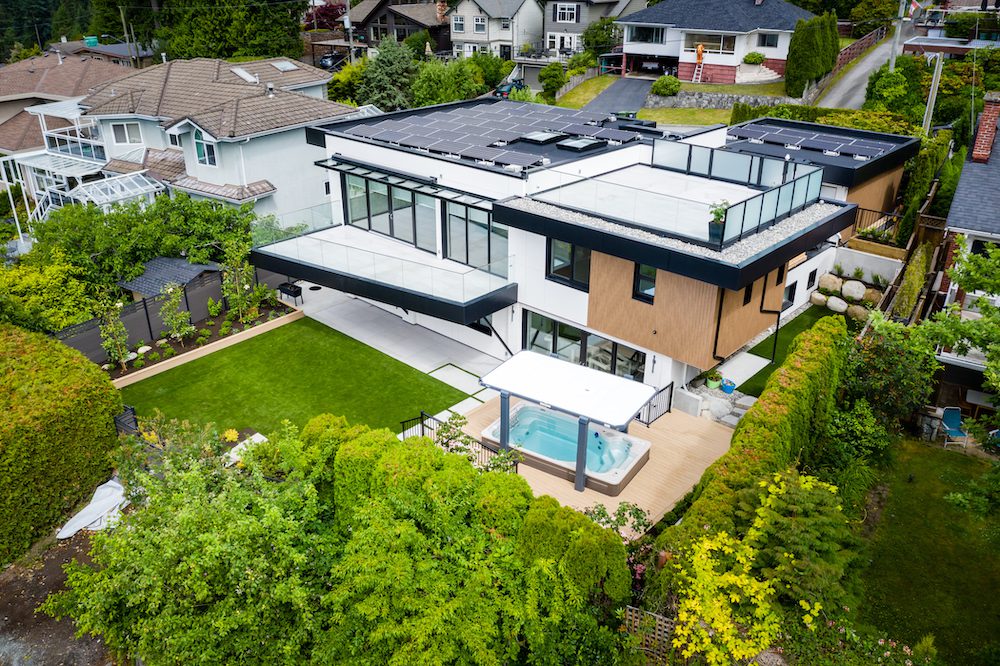
Build a High-Performance Home with Top Vancouver Builder Hasler Homes
As an award-winning custom home builder with years of experience, Hasler Homes is known for constructing exceptional, energy-efficient homes that prioritize quality craftsmanship and sustainability. From the planning and design stages all the way through construction to completion, we’ll be by your side to ensure an A+ home building experience.
Ready to build a high-efficiency home? Hasler Homes is ready to help!
Contact Hasler Homes today to learn how to get started.
Call: 778-688-7846
Email: info@haslerhomes.ca
Contact Form: https://haslerhomes.ca/contact/
Frequently Asked Questions
Below are some of the most common questions about high-performance homes. Still need more info? Give us a call or send us an email – we’d be happy to answer your questions!
What is the difference between green building and high-performance building?
The terms “green building” and “high-performance building” are often used interchangeably to describe sustainable construction practices. And while they are similar in many ways, there is a slight difference.
Green building focuses on minimizing environmental impact through eco-friendly material sourcing, renewable energy systems, water conservation, waste reduction, and more. On the other hand, high-performance building prioritizes sustainability and energy efficiency as well as durability and homeowner health and comfort. While all high-performance homes incorporate green building principles, not all green homes meet the rigorous standards of high-performance design.
How to build a high-efficiency home?
The easiest way for most people to build a high-efficiency home is to hire an experienced high-performance home builder like Hasler Homes.
A professional builder like Hasler will guide you through every step of the home-building process. They’ll ensure your home incorporates the latest eco-friendly technologies and sustainable building practices and meets your specific needs and preferences.
A professional home builder will also handle all the technical complexities of building an energy-efficient home, such as optimizing the design for natural light and ventilation, sourcing sustainable building materials, and integrating renewable energy systems like solar panels. In addition, they’ll help you navigate permits and regulations, ensuring the process is smooth and stress-free.
How much does it cost to build a high-performance home compared to a standard home?
In most cases, it costs more to build a high-performance home than a standard home. However, how much more depends on the homeowner and their decisions.
The cost of building an energy-efficient home can vary widely depending on several factors, including home size, location, and the specific features, technologies, systems and building materials the homeowner chooses. The homebuilder and other professionals the homeowner hires will also impact the total cost. Hiring a top Vancouver home builder will cost more upfront but save you money in the long run. How? Well, a company just learning to build high-performance homes might take longer to build and could make costly mistakes or overlook key aspects of a durable, high-quality home. On the other hand, an experienced builder like Hasler Homes will have the knowledge and skills to craft a beautiful and durable high-efficiency home that will benefit you and your family for years to come.
